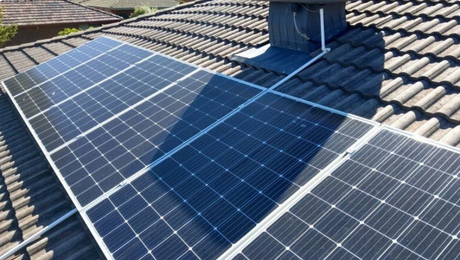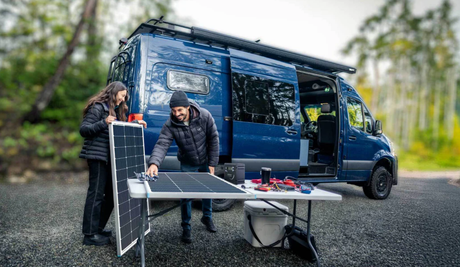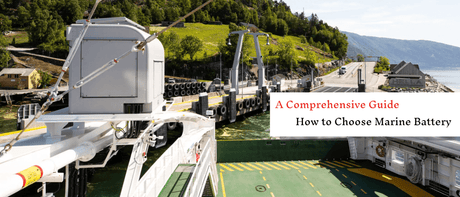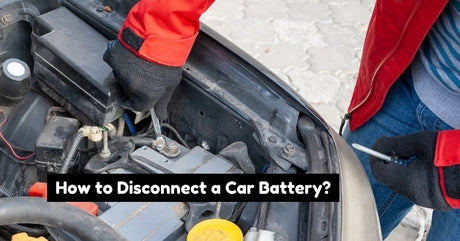Solar panels in Canada are becoming more the norm than the exception, which is excellent for renewable energy. These photovoltaic or PV systems can absorb energy from the sun and convert it from solar to electric power, reducing electric bills and providing users tax credits. But what is the lifespan of a solar panel? and how does it affect the long-term performance of this method of clean energy solutions?
While it’s nearly impossible to put an exact amount of time on any solar panel’s lifespan, some contributing factors play a role in longevity. Let’s learn more about how long solar panels can last and what you can do to extend your solar panels’ lifespan.
How Long Do Solar Panels Last?
Most manufacturers, engineers, and scientists agree that solar panels’ lifespan can be at least 20 to 25 years, if not longer, when well-maintained. Many solar panels that first came out in the 1980s are still up and running, providing evidence that lasting as long as 40 years isn’t uncommon. Plus, the technology and know-how applied to solar panels back in the 80s was drastically different from what we can do with our knowledge now.
Solar panels’ efficiency has increased significantly, with the first panel produced way back in 1954 by Bell Labs being about 6% efficient and current solar panels having up to a 21% efficiency rating. Even though they are much more efficient, they still experience something known as the solar panel degradation rate.
What Is the 'Solar Panel Degradation Rate'?
Solar panel degradation refers to the rate at which your solar panels’ efficiency reduces over time. On average, most solar panels will lose about 0.5% of their efficiency each year. If you do some quick math, that means after 25 years, your solar panel kits would still be providing 87.5% of their original output.
In other words, it’s not that your solar panels’ lifespan will just suddenly cut off, and the panels will die. It’s just that they won’t be as efficient as they once were. This minimal loss year after year allows most solar panel systems to continue producing solar energy for well beyond 25 years, which is why most solar manufacturers offer a 25-year warranty on their products.
Tips to Make Your Home Solar Panels Last Longer
So if solar modules and their attached energy systems can last at least 25 years, what can you do to ensure their longevity? Some decisions related to your solar panels’ lifespan need to happen even before you start enjoying your home solar power system.
Buy New and Reputable Solar Panels
The first step to ensuring you can extend the lifespan of your solar panels is to purchase new solar panels from a reputable manufacturer like Renogy. Not only do new solar panels and other components like charge controllers offer you a longer-lasting product, but they are also less likely to have issues or need much maintenance.
Plus, even though solar kits are becoming more popular with each passing year, the technology and production surrounding these devices are still evolving. Opting for an older, used version may cause you to contact technical support regularly for assistance when things aren’t working correctly. A reliable company will only offer their best products and be able to back up their work sufficiently.
Hire Professional Installers
Another crucial decision to improve your solar panels’ lifespan is to determine which solar installer to use for your solar panels’ installation. If you’re using folding solar panels, you may be able to set everything up on your own without any issues. But, if you’re investing in a residential solar system, you should really leave the installation to the professionals.
Most parts of Canada have multiple solar installers you can choose from, so it’s worth taking the time to research each of your options before landing on a decision. Keep in mind that, much like many forms of home improvement, the cheapest option is not always the wisest, and the most expensive doesn’t guarantee perfect results.
With that being said, professional installers have the knowledge and expertise to install your solar panels at the best angles and tilts and ensure they stay in place safely for many years. They also have backgrounds in electrical work and will hook up your system correctly so that you don’t have to worry about shortages or burnouts at any stage.

Regularly Clean and Maintain Your Solar Panels
Once you have the professionals install your solar energy system, you can improve your solar panels’ lifespan by continually maintaining all of the components. The three most common issues owners encounter with their solar panels are cracked panels, broken glass, and loose connections.
Your solar company can help you get replacement parts or repairs for cracks and breaks, and loose connections are sometimes very quick fixes. If you think your system has more significant electrical issues, it’s better to call out an expert as soon as possible.
Most panels end up cracked or broken due to a buildup of debris, dirt, and sand. That’s why if you want to avoid repairs, always keep your solar panels clean and debris-free. You can rinse them with water to remove dirt and sand, and it’s helpful to brush off any accumulated snow when possible.
Snow removal helps prevent the panels from freezing and cracking, as well as ensures not too much weight collects on the panels. For the same reason, it’s a good idea to remove sticks, leaves, or other debris when you notice it. As much as everyone enjoys the Canadian wilderness, your solar panels are better off without it.
When to Consider Replacing Your Solar Panels
Replacing some or all of your solar panels is a big investment, so it’s worth knowing what the signs are that you should really consider doing it. For starters, if none of your panels are broken, and they are still covering your energy needs as they have been, you probably don’t need to think much about replacements anytime soon.
If your panels are no longer supplying your home with the energy it consumes typically, and your panels are 25+ years old, you may want to look into replacing them. First, check that there aren’t any electrical issues or other reasons for the loss of efficiency. Additionally, if you have multiple broken panels due to lack of maintenance or rough weather, replacing them with newer, more advanced panels may be more cost-effective.
It’s important to note that solar panels rarely “go bad” or just stop working. Instead, they slowly degraded over time to the point where you may not even notice it. If you suddenly have panels not producing their usual output, it’s worth having them looked at before just replacing them, as it’s more likely a connection or other issue that can be resolved.
What Other Solar System Components Might Need Replacing?
A complete solar energy system comprises much more than just solar panels. Other components such as inverters, batteries, wires, and racks may not survive as long as the panels themselves. Below are more details on some of the system’s parts you may have to replace to get the most out of your setup over the years.
Solar Panel Racks
Your solar panels attach to your roof or a ground mount using racking solutions such as mounts and rails. While these components are often made out of durable materials such as aluminum, they are exposed to the elements day in and day out. If your racking system starts to become loose or break, it could threaten your solar panels’ lifespan as well as your roof.
Anytime any maintenance happens with the panels, the racking should also be checked for durability and safety. If any parts are wearing down or on the verge of breaking, replace them as soon as possible.
Solar Panel Inverters
Your solar panel system’s inverter converts solar energy, which is direct current or DC energy, into alternating current or AC energy. Your home then uses that AC energy to power appliances, electronics, lights, and everything else you plug in. Because your inverter constantly works to convert electricity, its lifespan is usually around 10 to 15 years, meaning you’ll need to replace it at least once, if not a second or even third time, before you have to think about replacing your panels.
Some consumers opt to purchase microinverters一a newer, smaller version of a standard inverter一because they are more likely to last closer to the 25-year mark. However, because they are a newer technology still being refined, microinverters will cost you more upfront.
Solar Panel Batteries
Solar energy systems don’t require batteries to operate, but many homeowners see the value of battery backup and decide to invest in these energy storage devices. It’s also possible to use solar batteries with battery chargers to have even more energy alternatives.
Most solar batteries on the market today come with a ten-year warranty because that’s about how long they’re expected to perform at their peak. Like your solar panels, your solar batteries could easily continue to operate for more than ten years—you may just not be getting the most out of them anymore.
To help keep your batteries strong, try not to leave them uncharged for prolonged periods, and if you have more than one battery, set up a schedule to rotate them so they are getting used equally. Investing in larger battery cables that have a lower resistance can also extend batteries’ lifespan.
Can You Extend the Lifespan of a Solar Panel?
Without much effort, it’s pretty simple to find ways to extend your solar panels’ lifespan. Because most home solar panel systems do not require any moving parts, it’s highly unlikely they will “break down” to the point that the system is no longer reliable. Instead, it’s more of slow burnout overtime at a nominal rate of efficiency loss.
As mentioned, keeping your solar panels clean goes a long way in extending their lifetime. Yes, solar panels are designed to be exposed to the elements and can even handle the heavy snowfall in Canada, but giving them a helping hand whenever possible is also useful.
Additionally, it’s to your advantage to maintain all of the components of your system to ensure your panels can continue to do their job and get a better return on your investment. Don’t wait too long to consider replacing your inverter, batteries, racks, or wires, as these parts are more likely to wear down faster than the panels themselves.
One way to keep an eye on all parts of your system and individual panels is with IoT monitoring. It might be a bit more involved than the usual “set it and forget” approach to solar systems, but the data and details you collect will allow you to provide your panels with the most efficient system possible.
Finally, anytime you need assistance with your system, rely on the expertise of the professionals and give them a call. They are the ones who will know how to solve any problems you may be facing, and they have the experience and equipment to make necessary repairs.
Even though you could climb up on your roof or play around with some electrical wiring after watching a YouTube video, that doesn’t mean you should. It’s better to keep yourself and your solar energy system safe and leave any work to the experts.
Solar Panels’ Lifespan in Canada
When you invest in solar panels, you’re investing in decades of renewable energy your home can rely on day or night. The right system can even see you breaking even in a matter of years and experiencing energy independence sooner than you thought.
To help keep your solar panels up and running for as long as possible, give them a bit of care and attention when needed, and call in the solar experts if something seems off. Much like the lifespan of a roof, you can expect to get at least 25 years out of your solar energy system, and with the proper maintenance and care, significantly longer.









